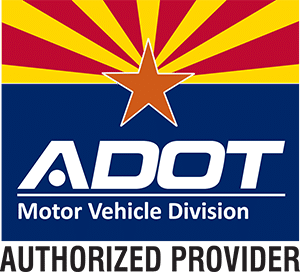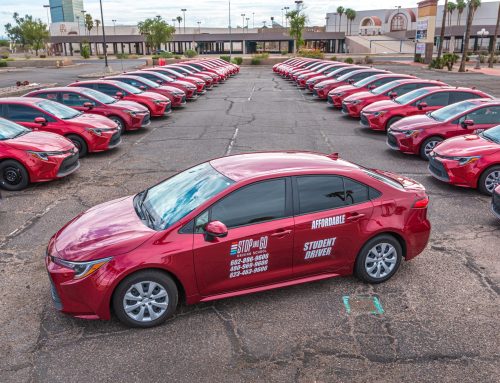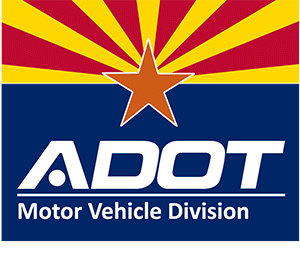Steering Your Way to Safety: Courses for Drivers of All Levels
Driver’s education isn’t just for teens! People of all ages need to learn how to drive safely. From teenagers eager to get their first taste of independence to adults starting to drive later in life, everyone can gain confidence and competence behind the wheel with the right training.
In this blog, we’ll explore the various courses available for drivers and what to look for when choosing the right driving school for your needs.
Why Attend Driving School?
Arizona requires 30 hours of at-home practice before you can apply for a driver’s license, but not everyone can meet this requirement. A qualified driver’s ed program is not only a faster, more convenient way of getting the necessary training, but you also get much more value for your time. You gain comprehensive knowledge of traffic laws, hands-on experience with skilled instructors, and defensive driving techniques to ensure you’re prepared for any situation on the road. Plus, many insurance companies offer discounts to drivers who complete certified courses, saving you money, too.
Courses for Every Experience Level
Another key benefit of attending a driving school is that there’s no age limit! People of all ages can (and do) benefit from professional instruction.
Teenage drivers
For those who are just starting their driving journey, driving schools offer beginner courses that cover the basics of vehicle operation, traffic laws, and safety practices. These courses typically include classroom instruction and behind-the-wheel training.
In the classroom, students learn essential theoretical knowledge, such as understanding road signs, traffic signals, and general rules of the road. Behind the wheel, teens get practical experience driving in various conditions, from calm residential areas to busy highways. These courses also cover many defensive driving techniques to help new drivers learn how to anticipate and react to potential hazards.
Adults needing improvement
Even experienced drivers can benefit from refresher courses, especially if they’ve developed bad habits over the years. These courses focus on updating knowledge, improving skills, and reinforcing defensive driving principles, ensuring drivers are aware of any changes in traffic laws and driving techniques.
For example, many adults may have been taught to keep their hands at the steering wheel’s 10 and 2 o’clock positions. Today, however, the National Highway Traffic Safety Administration (NHTSA) recommends the 9 and 3 o’clock positions. Refresher courses help drivers refine skills like these and eliminate any unsafe habits.
Adults who have never driven
For adults ready to drive for the first time, specialized driver’s ed courses offer a welcoming and supportive environment to build confidence and acquire essential skills. These courses cover many of the same topics that a teenage driving course covers, but they’re adapted to fit the unique needs and learning pace of adult beginners.
Adults, for instance, often experience greater anxiety and apprehension when learning to drive later in life. Adult driver’s ed programs take this into account and provide supportive instruction tailored to help adult learners overcome their fears.
What to Look for in a Driving School
Choosing the right school is crucial for getting the best education and training. Here are some key factors to consider:
- Accreditation and certification: Make sure the driving school is accredited and the instructors are certified by relevant authorities. This ensures that the school and its teachers meet certain standards of quality.
- Experienced instructors: Instructors shouldn’t just be properly certified. They should also have experience behind the wheel, in education, and working with driving students of various ages and skill levels.
- Curriculum: Check that your desired course includes both classroom instruction and behind-the-wheel training. The curriculum should also be tailored to fit your age and experience level.
- Reputation: Research reviews and testimonials from past students to gauge the school’s reputation and effectiveness. A school with positive feedback from former students will likely provide a good learning experience.
- Cost: Compare pricing to ensure you’re getting good value for the services provided. Remember that the most expensive option isn’t necessarily the best, but you don’t want to compromise on quality or safety either.
- Flexibility: Does the driving school have multiple locations? Do they have flexible hours? This is particularly important for adults who may need to balance driving lessons with work and other commitments.
Ready to steer your way to safety? Enroll in a driving course today and gain the skills and confidence you need to navigate the roads with ease.








